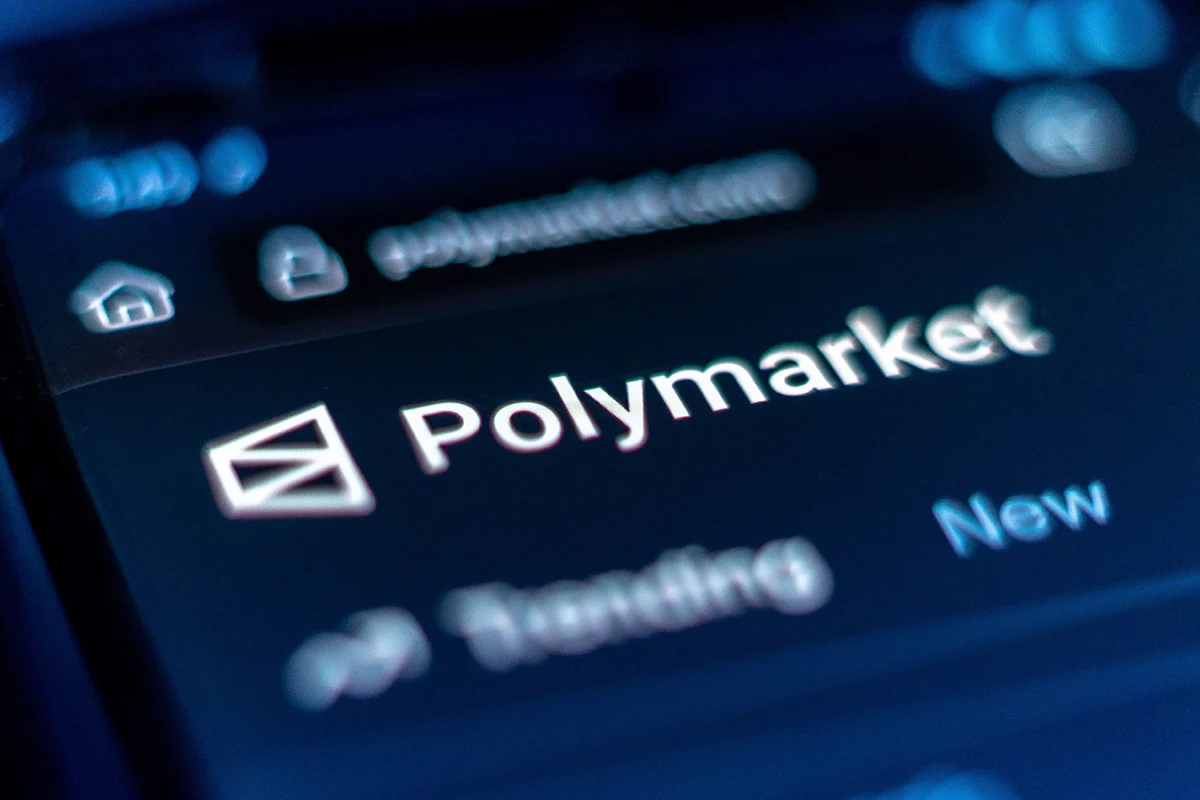TLDR
- Polymarket CMO Matthew Modabber confirmed the platform will launch a POLY token and airdrop to users after its U.S. relaunch
- The company acquired QCX, a CFTC-regulated derivatives exchange, for $112 million to operate legally in the United States
- Polymarket stopped U.S. operations in 2022 due to regulatory uncertainty but received approval to return in September
- The platform recently raised $2 billion from Intercontinental Exchange (NYSE parent company) at a $9 billion valuation
- Polymarket and rival Kalshi generated $1.4 billion and $2.9 billion in trading volume respectively last month
Polymarket will launch its own token and distribute it to users through an airdrop after the prediction market platform officially relaunches in the United States. Chief Marketing Officer Matthew Modabber made the announcement during an interview on the Degenz Live podcast Thursday.
🚨JUST IN: POLYMARKET TO LAUNCH A TOKEN!
CMO Matthew Modabber confirms a native $POLY token and airdrop. Polymarket is eyeing a new funding round valuing it up to $15B. pic.twitter.com/3oBiYXlOhh
— Coin Bureau (@coinbureau) October 24, 2025
“There will be a token, there will be an airdrop,” Modabber stated. He emphasized that the company wants to ensure the token has real utility and long-term value. The team is not rushing the launch because they want it done properly.
The token launch is not happening immediately. Modabber said the company’s main priority right now is successfully relaunching in the U.S. market. Once that launch is complete and stable, the team will shift focus to the token.
Polymarket stopped allowing U.S. users to access its platform in 2022. The company faced regulatory uncertainty at the time. In September, founder Shayne Coplan announced the platform received approval to operate in the United States again.
The company acquired QCX earlier this year for $112 million. QCX is a derivatives exchange registered with the Commodity Futures Trading Commission. This acquisition provides Polymarket with the regulatory framework needed to offer prediction markets to U.S. customers legally.
A regulatory filing submitted on September 30 indicated the platform could list its products any time after October 2. This means the U.S. version of Polymarket could go live at any moment. The company has not announced a specific launch date.
Token Details and Distribution
Modabber did not provide specific details about how the token will work. He did reference Hyperliquid as an example of a well-designed token model. Hyperliquid is a non-custodial perpetual exchange that launched its token without relying on short-term trading incentives.
Speculation in the crypto community suggests the airdrop may be based on trading volume. This would mean users who have traded more on the platform could receive larger token allocations. The company has not confirmed how distribution will actually work.
Polymarket allows users to bet on real-world events by buying shares in specific outcomes. Users can trade on topics ranging from election results to sports games. The platform has seen substantial growth in recent months.
Recent Growth and Funding
Polymarket generated $1.4 billion in trading volume last month. Rival platform Kalshi recorded $2.9 billion in the same period. The prediction market sector is experiencing rapid expansion.
The company recently secured $2 billion in funding from Intercontinental Exchange. ICE is the parent company of the New York Stock Exchange. This investment valued Polymarket at $9 billion post-money.
That valuation represents rapid growth from earlier in the year. Polymarket raised $150 million in June at a $1.2 billion valuation. Peter Thiel’s Founder’s Fund led that funding round.
Bloomberg reported Thursday that Polymarket is exploring additional funding. The company is reportedly seeking a valuation of up to $15 billion. This would represent another substantial increase in a short period.
Polymarket has also signed partnership deals with traditional companies. The platform will serve as the clearing partner for DraftKings’ entry into prediction markets. The company also reached a multi-year licensing agreement with the National Hockey League.







